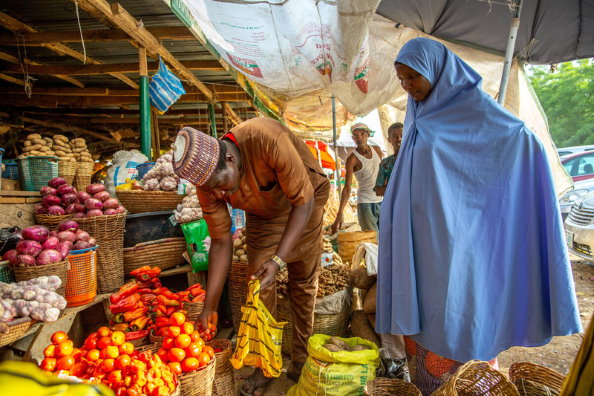Amid the numerous challenges facing the country, stands in a most menacing context the spate of unrelenting increases in the prices of food items across markets in Nigeria. To buttress the foregoing observation, the National Bureau of Statistics (NBS) recently reported that the inflation rate rose to 18.17% in March 2021, up from 17.33%, just a month earlier, in February 2021. The same NBS report also held that the food inflation mirrored the general situation by rising to 22.95% in March 2021 from 21.79 % in February 2021. The net effect of this situation is the widespread groaning by Nigerians, especially the low ranking civil servants and other low-income earners, over skyrocketing food prices. Their anguish is worsened by several factors which deepen the prevailing state of mass poverty such as the employment crisis and compromised payment structures in the system.
In the light of the circumstances, to say that the country is courting the incidence of widespread, inflation-driven food riots sooner than later, may be an understatement.
- Poor electricity: How Fashola mocked sector drivers in 2015 video
- B/Haram lures Geidam residents with N20,000 each
Although the incidence of rising food prices has been going on over time, the spikes recorded in the last three month or so have been most dramatic. Available evidence confirms that the causative factors derive from a cocktail of issues including the flip flop acts of commission and omission by the government, whereby it fails to develop robust policy framework for the modernisation of the country’s agriculture, guaranteeing food and feed security, and boosting the economy generally.
Against the backdrop that agriculture accounts for 80% of the country’s GDP and 60% employment, Nigeria basically has an agrarian economy which demands preponderant focus by the government on the optimization of that sector. Sadly, the government is not doing the needful to keep the sector in an optimal condition.
The situation calls for drastic remedial measures by the government starting from a review of its extant disposition to the agricultural sector. A relevant factor to be considered in the sectoral plan review is the need to diminish the vulnerability of the sector to exogenous shocks and turbulences from the wider economy. A typical instance is the sector’s collapse in the face of the trending COVID-19 pandemic and the sporadic insecurity flashpoints which are spreading and even owe their proliferation to the crisis in the agricultural sector. For instance, the impact of the current state of insecurity cannot be taken for granted given that a considerable portion of the country’s subsistence farming population, who in any case constitute the mainstay of the country’s agricultural productivity, can no more go to their farms in several states, courtesy of the unrelenting spate of bloody clashes between herders and farmers.
This is just as the COVID-19 pandemic also imposed similar restrictions on the sector. It is worthy of note that in the circumstance where the country depends substantially on imported food and remains unable to source local alternatives, the present state of widespread food shortages and attendant skyrocketing of prices of available stocks, becomes inevitable. Other systemic challenges include the shortage of fertiliser and sundry farm inputs for needy farmers.
Primacy should be accorded to the agricultural sector in all considerations of national security and development planning. That is if the government considers reversing its present laid back disposition to developing Nigeria’s agriculture beyond its present stagnant condition. What is needed is the political will to boost traction in the enterprise. In the prevailing circumstances, the country is not short of options that offer themselves as viable initiatives to bail it out of its present quagmire.
The government needs to save itself and the country from further turbulence by acting speedily on the issue of rising food prices. For as history teaches, no government survives sustained food scarcity, as hunger brings out the worst in people.

 Join Daily Trust WhatsApp Community For Quick Access To News and Happenings Around You.
Join Daily Trust WhatsApp Community For Quick Access To News and Happenings Around You.


